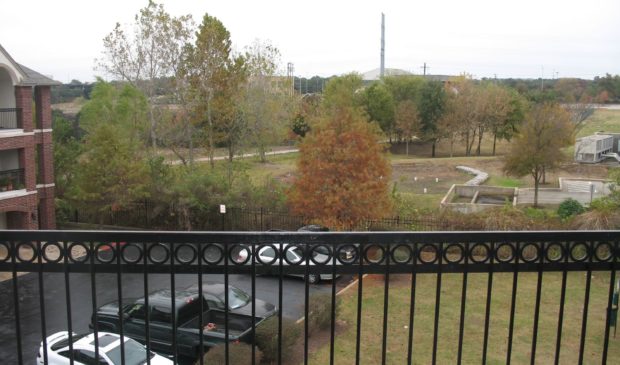Council struggles against displacement and segregation
Friday, August 4, 2017 by
Jack Craver “I believe that part of our role as a community and as a government is to provide protections against immoral market forces,” said Council Member Greg Casar, describing his efforts to increase affordable housing and fight economic segregation.
If Casar sees some market forces as immoral, however, he doesn’t argue that city government’s duty is to fight them so much as to step in and provide what the market isn’t offering: housing for Austin’s poor and working class.
Despite the numerous restrictions the state of Texas has placed on Austin’s ability to fulfill that goal, there remain several distinct actions city government can take. It can directly provide housing by purchasing land, it can offer incentives to private developers to include income-restricted units in their projects or the City Council-controlled Austin Housing Finance Corporation can issue bonds to help finance private affordable housing developments that qualify for federal and state tax credits.
Casar, along with the majority of Council, wants the city to aggressively invest in affordable housing and take advantage of any program on the table. The consequence of inaction on that front, he argued, would be to simply accept a massive exodus of poor and working-class people from the city.
Rising property values that are driving up rents and driving out many longtime residents of his Northeast Austin district are mostly just a result of more affluent people wanting to live in the area, said Casar. The solution is not to try to stop the wealthy from moving there, but to provide opportunities for the original residents to stay. Doing that would achieve two goals: providing affordable housing and promoting economic integration, something sorely lacking in Austin.
The problem, which exists throughout the country, is that affordable housing developments tend to be concentrated where land is cheap. That increasingly means the furthest outskirts of the city. That puts low-income people in areas where there are fewer job opportunities, fewer amenities such as grocery stores, and commutes that are long and expensive.
On Thursday, for instance, Council both endorsed an affordable housing project about two miles east of Highway 130 on FM 969 and voted to increase spending on mobile farmers markets aimed at bringing fresh food to the many low-income people living in “food deserts” on the city outskirts.
In an attempt to work against that trend, Council approved a resolution sponsored by Casar, Mayor Steve Adler, and Council members Delia Garza and Pio Renteria that called on city staff to explore ways it could incentivize affordable housing developments in “high-opportunity” or gentrifying areas.
It’s a difficult situation, and city officials are hard-pressed to deny affordable developments proposed in what they call “low-opportunity” areas, particularly when there are often no proposed alternatives. Council Member Leslie Pool made sure of that when questioning city staff Thursday about the potential effects of Casar’s resolution.
If proposed projects were not located in such areas, asked Pool, would city staff recommend denying them?
“I think it would be hard for me to recommend denying any affordable housing,” replied Rosie Truelove, interim director of the Neighborhood Housing and Community Development Department.
Not all affordable developments are planned for the least coveted parts of town. On Thursday Council also approved appropriating $5.5 million in bond funds for two affordable housing developments in highly desirable areas – one in Mueller and another at I-35 and Woodland Avenue. Mayor Pro Tem Kathie Tovo, in whose district both are located, said she was delighted to see them come about.
Funding isn’t the only problem the city faces in trying to provide housing. There’s also the issue of making people aware of the housing opportunities that are available to them as well as making sure that developers that have committed to providing income-restricted housing keep their promise.
It was in that vein that Council unanimously approved another resolution Thursday instructing city staff to add more information to the city’s Resources for Renters website informing those displaced by redevelopment, rehabilitation or foreclosures of the resources available, including the Austin Tenants’ Council, Texas RioGrande Legal Aid and other groups that help tenants appeal evictions or find new housing.
In addition, the resolution calls on the city manager to develop a database of income-restricted housing units in the city and to note their proximity to certain amenities, such as schools, transit, grocery stores and health clinics.
This story has been changed since publication to correct a typo. Photo by Corey Pudhorodsky made available through a Creative Commons license.
The Austin Monitor’s work is made possible by donations from the community. Though our reporting covers donors from time to time, we are careful to keep business and editorial efforts separate while maintaining transparency. A complete list of donors is available here, and our code of ethics is explained here.
You're a community leader
And we’re honored you look to us for serious, in-depth news. You know a strong community needs local and dedicated watchdog reporting. We’re here for you and that won’t change. Now will you take the powerful next step and support our nonprofit news organization?









